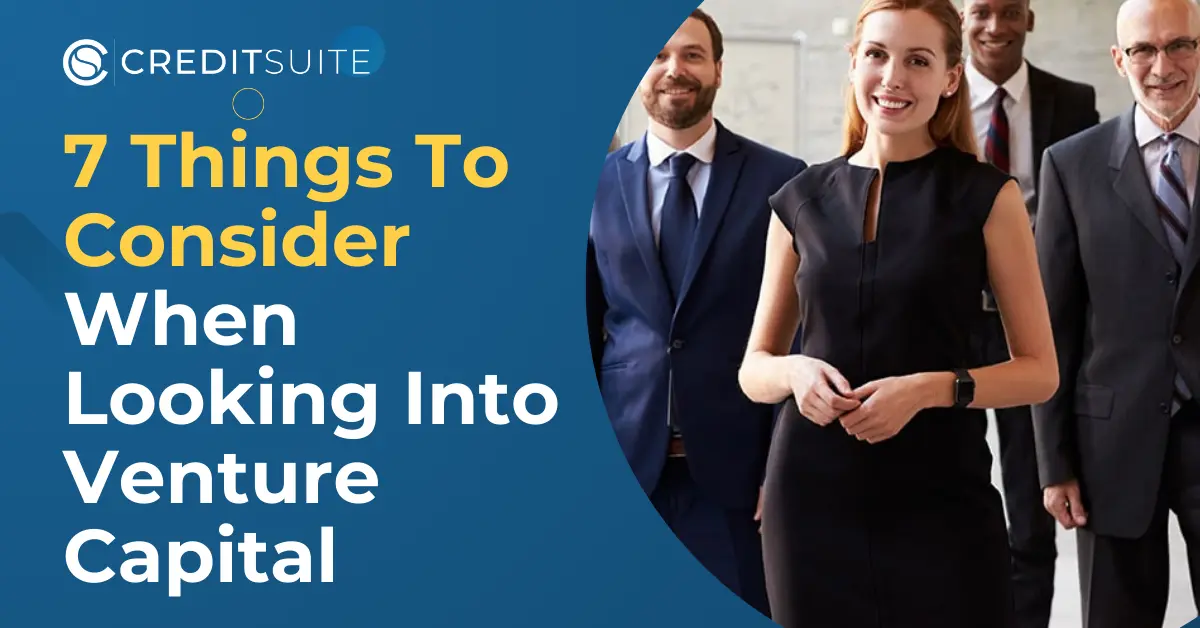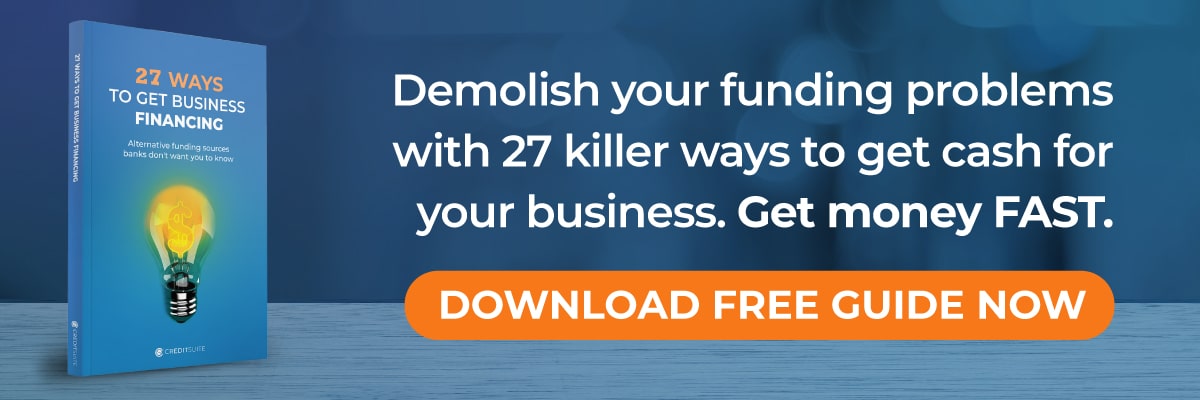Looking into Venture Capital?
Do you know what to consider when looking into venture capital? Do you consider if venture capital investment is right for your small business? Then check out this article.
Obtaining the money you need to grow your business does not need to be too tough. Many businesses nowadays choose venture capitalists. These types of options can benefit startup companies. But there are details you should know.
Looking into Venture Capital: 1. What is a Venture Capitalist?
First off you could be asking yourself, exactly what a venture capitalist is. Per Investopedia:
“A venture capitalist is an investor who either provides capital to startup ventures or supports small companies that wish to expand but do not have access to equities markets. Venture capitalists are willing to invest in such companies because they can earn a massive return on their investments if these companies are a success.”
 Venture Capitalists will provide capital to help establish brand-new startups, in the event that the VCs feel a business has both high-growth and high-risk potential. These usually are fast-growth businesses with an exit strategy already in place. Venture capitalists will normally seek to recoup their investment inside a 3 – 5 year interval. They will also, normally, want to acquire a large portion of a business if not a controlling percentage. People like Jeff Clavier do both, perhaps hinging on the amount of risk and the anticipated degree of return. Clavier is the most prolific angel investor of all time and is also a VC.
Venture Capitalists will provide capital to help establish brand-new startups, in the event that the VCs feel a business has both high-growth and high-risk potential. These usually are fast-growth businesses with an exit strategy already in place. Venture capitalists will normally seek to recoup their investment inside a 3 – 5 year interval. They will also, normally, want to acquire a large portion of a business if not a controlling percentage. People like Jeff Clavier do both, perhaps hinging on the amount of risk and the anticipated degree of return. Clavier is the most prolific angel investor of all time and is also a VC.
Aside from Clavier, some other recognized venture capitalists include: Twitter investor Peter Fenton; PayPal’s cofounder, Peter Theiland; Chris Sacca, an early investor in both Twitter and Uber; Facebook’s very first investor, Jeremy Levine (also Pinterest’s largest investor); and early Facebook investor Jim Breyer.
So why did those VCs invest in those particular properties?
Looking into Venture Capital: 2. What do Venture Capitalists Want?
Venture capitalists try to find a solid management team; a large potential market; and a unique product or service with a robust competitive advantage. They also look for opportunities in industries they have experience with, and where they would have the chance to acquire a significant portion of the company, so they can influence its direction.
This is due to the fact that the drawbacks for venture capitalists could be rather ruinous. Venture capitalists can experience substantial losses if their choices don’t succeed. Nevertheless, these investors are usually well-off. They are frequently so rich that they can afford to take the risks connected with funding new and unproven companies, so long as they seem to have a great idea and a great management team.
For this reason a VC will seek a company which seems to have potential. The VC usually has sufficient wealth to be able to take risks. But these are not short-sighted risks. Rather, the venture capitalist does some digging and wants to invest responsibly. They don’t want to lose their shirts.
Looking into Venture Capital: 3. Where Does the Money Come From?
Venture capital firms manage a fund developed from pooled money. These funds stem from the venture capital firm itself; wealthy individuals; pension funds; foundations; insurance carriers; and corporate pension funds, etc.
All partners within a VC firm have partial control over the fund. However, the VC firm controls precisely where the fund is invested. Investments are often into companies or ventures which most financial institutions or capital markets would deem too high-risk for an investment. The venture capital firm works as the general partner. The insurance companies, pension funds, etc. are all limited partners.
Venture capital fund managers are compensated with management fees and carried interest. Depending upon the VC firm, approximately 20% of the profits go to the company managing the private equity fund, while the remainder goes to the limited partners who invested into the fund. General partners commonly get an extra 2% fee.
Looking into Venture Capital: 4. Which Types of Companies do VCs Typically Invest In?
Many ideas deserve some variety of investment. However, they are not necessarily deserving of a venture investment. When you are looking into venture capital, recognize that venture capitalists might not be looking into your type of business.
Venture capitalists are looking to put in millions of dollars. They are likewise looking for multiple times return on that capital. Therefore VCs will concentrate on how skilled and promising the company’s founders are and how big the market is (or can be). If they don’t think the market will be major enough, then they usually are not going to want to invest.
Hence, if you’ve got a company in a smaller sized market (such as dry cleaning, as an example), then you’ll do better to look for angel investors instead. Angels will normally invest in early-stage or startup companies in exchange for a 20 – 25% return on their investment. But in contrast to VCs, angel investors have the tendency to invest less, and will also want less control.
Looking into Venture Capital: 5. Where in the Funding Cycle do VCs Invest?
It’s a good idea to learn the stages of funding, since venture funding comes in stages and not all at once. Normally, there are six stages. These more or less represent these stages of a small business’s life cycle.
Seed Funding
This is the first round of financing needed to prove a new idea. Funding normally comes from angel investors or, these days, from equity crowdfunding.
Start-Up
These are early stage firms which need to have funds for their expenditures from marketing and product development.
https://creditsuite.wistia.com/medias/94z8msbn94?embedType=async&videoFoam=true&videoWidth=640
Growth (Series A Round)
These are early sales and manufacturing funds. This is ordinarily where VCs will enter the picture, if they do at all. Series A is basically the initial institutional round. This is where the majority of companies will have the most growth.
Second-Round
This will be working capital for early stage enterprises that are selling product, but are not yet making a profit.
Expansion
This is also called mezzanine financing. It is expansion funding for a newly-profitable business.
Bridge Financing
Here is where a startup company looks for backing in between full VC rounds. The objective is to raise smaller amounts of money rather than a full round. However, normally the existing investors will participate.
VCs usually depart via a secondary sale, an IPO (initial public offering), or an acquisition.
Looking into Venture Capital: 6. How Does Venture Capital Investing Start?
It all begins with an introduction. VC firms have the tendency to opt for genuine in-person introductions by means of networking. This gives them a feel for whether your business has what it takes and whether you do as well.
They truly do want to know you, so it’s not just a ‘meet, greet, and get a barrel of money’ kind of meeting. Rather, getting VC funding can take a while, especially if you are a brand-new business person. If you don’t have previous successes under your belt already, then venture capitalists need another reason to have confidence in your judgment.
While VCs have the kind of financial backgrounds, typically, to be able to take a chance for investments, they want a reason to do this. They are not just going to rain cash out of the sky for you. So they will need to see how you work, and how you manage both problems and successes. Would you invest your money on ambiguous promises from somebody you didn’t know well?
I didn’t think so.
Looking into Venture Capital: 7. Who Do You Work With in a VC Firm?
Businesses need to get a lead partner. This lead partner is basically your business’s (and your, by extension) advocate inside the firm. Your ideal way to connect with a lead partner is to focus on an individual in the firm who has an interest in your specific niche. If your company is seeking to revolutionize the practice of law by means of automation, then you probably would not be able to find a VC with a particular focus on the law. And this is true even if there are partners with juris doctorate degrees. Instead, you would be trying to connect to a partner with an interest in automation or electronics or computers.
This means that, while VCs are trying to get to know you, you should be attempting to get to know them. This is meant to be a give and take relationship. Plastering every company in your town with your resume won’t get you a job and, by the same logic, pitching to each and every VC out there will not get you funding. You have to focus, so that means proactively digging into VCs’ backgrounds. What does their company biography say? Are they on LinkedIn or Twitter? Do they have published works you could read?
If you think this is a lot of homework, you would be right.
Looking into Venture Capital: Bonus! 8. Getting to Funding
Become familiar with the funding process. A VC firm’s partners will meet to discuss whether they will finance your business, and for just how much. You need to get to that meeting! So, once again, you’ll need to do your homework, and determine where and when those meetings are (often Mondays), and how you can get in. They aren’t going to let in just anyone.
Seed stage funding will normally be for less and will require fewer meetings than Series A.
If a venture capital firm is interested in funding your startup, they will send you a ‘term sheet’. Term sheets are documents outlining all of the crucial economic and governing terms of the investment. Normally you’ll see the valuation of the company, board composition, investor rights, option pool, voting rights, etc. included in a term sheet.
A term sheet’s purpose is to spell out all the essential business terms. Therefore, effective term sheets will specify everything and help everyone avoid unpleasant surprises as soon as the full documents have been drafted. Always, always, always (did I mention always?) have a lawyer check and negotiate them.
VC firms will also want due diligence disclosure from you. That means your financials, any intellectual property materials (for instance, patents, trademarks, or copyrights), contracts, employment agreements and so forth. Again, the VCs do not want to be in for any nasty surprises. They not surprisingly want to know precisely what they are getting themselves into.
Looking into Venture Capital: Takeaways
When done well, your company will grow, and you’ll have new and positive associations with individuals who can get you funding. Venture capital funding isn’t for everybody, but for those entrepreneurs and companies where there is a good fit, the results can be extremely rewarding.


